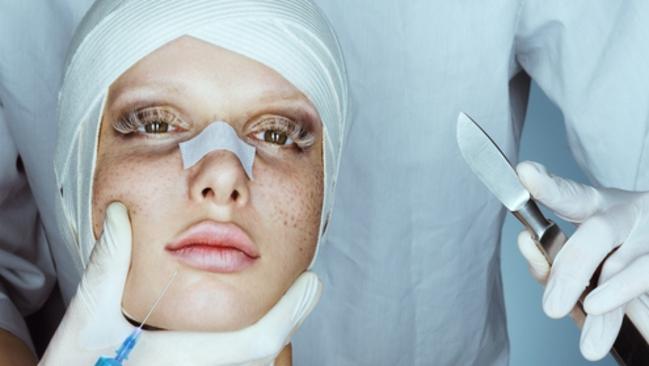Surgery colleges demand action to reign in cosmetic surgery cowboys
POWERFUL medical colleges are demanding governments get tough on rogue cosmetic surgery cowboys with new regulations.

News
Don't miss out on the headlines from News . Followed categories will be added to My News.
UNDERTRAINED and dangerous doctors labelling themselves as cosmetic surgeons must be stamped out through tougher standards and safety checks on the industry, Australia’s leading surgical bodies are demanding.
Following a string of dangerous cosmetic surgery disasters and the spread of day surgery clinics operated by untrained surgeons, three of the nation’s surgical colleges have called for an overhaul of the industry.
Related: Woman dies after botched boob job
Patients furious after being butchered by banned doctor
In an unprecedented move, the Australian and New Zealand College of Anaesthetists, the Royal Australasian College of Surgeons and the Australian Society of Plastic Surgeons have come together to push for regulations requiring practitioners be appropriately skilled and trained for the procedures they are undertaking.

In a position paper being presented to governments and health regulators in each state, the powerful medical colleges say uniform monitoring and auditing of cosmetic surgery clinics must become part of the requirements to meet national safety and quality healthcare standards.
While plastic and other surgeons must complete a minimum of 12 years training, GPs and other doctors can set themselves up as cosmetic surgeons without necessarily undertaking additional specialist tracing beyond a standard medical degree.
Following the death of Sydney beauty clinic owner Jean Huang after a botched breast surgery last month, as well as ongoing investigations into Victorian doctors, ANZCA president Prof David Scott said governments needed to act.

“We have got to protect the public from practitioners who are out there bending the rules which is not in the patients’ interest,” Prof Scott said.
“People will push the limits beyond what is safe and ethical practice. People are setting up clinics outside the scope of protection.
“In the end members of the public need to be aware that if they are having a procedure and the person sticks a needle in the vein in their arm, they would want to know they are in a regulated, accredited centre and not treated by someone working outside the scope of their practice.”
RACS President Mr John Batten said standards for facilities, equipment, staff, training, documentation and before and after surgery care had to have minimum agreed standards.
While the licencing and accreditation processes for day surgeries are disjointed from state to state, ASPS President Professor Mark Ashton said the standards defined in the joint statement could form a new blueprint better protect the public.


